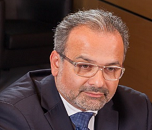Renowned Speakers

Camelia Tulcan
Banata’s University of Agricultural Sciences and Veterinary Medicine Romania

Qing Xia
National Center of Biomedical Analysis, China

Young C Kim
Seoul National University, South Korea

Hemant Misra
Prolong Pharmaceuticals USA

May Azzawi
Manchester Metropolitan University UK

Pierre Eftekhari
Inoviem Scientific France
Recommended Global Toxicology Webinars & Conferences
Europe & UK
Asia Pacific & Middle East
Canada
TOXICOLOGY CONGRESS 2026
To Collaborate Scientific Professionals around the World
Conference Date March 23-24, 2026
For Sponsors & Exhibitors
Speaker Opportunity
Useful Links
Past Conference Report
Supported By
All accepted abstracts will be published in respective Conference Series International Journals.
Abstracts will be provided with Digital Object Identifier by
